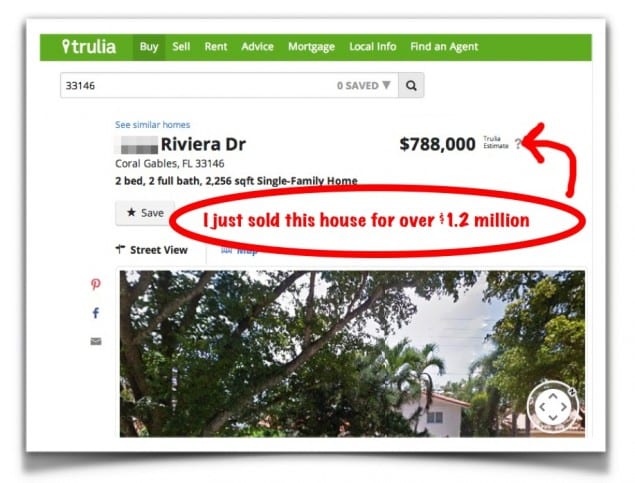 If you know me or have read my past columns, you’ve probably concluded that I’m a tech enthusiast. If I’ve sold your home or sold you a home, you’ve undoubtedly seen me reach into my technological bag of tricks to put technology and the Internet to work for me. Maybe I’m a product of my generation, but I can’t help but be flabbergasted at the lightning pace of today’s evolving technology. I can’t imagine why anyone wouldn’t embrace it the way I do. We live in amazing times! A world of information is available to us at the push of a button or even with a voice command.
If you know me or have read my past columns, you’ve probably concluded that I’m a tech enthusiast. If I’ve sold your home or sold you a home, you’ve undoubtedly seen me reach into my technological bag of tricks to put technology and the Internet to work for me. Maybe I’m a product of my generation, but I can’t help but be flabbergasted at the lightning pace of today’s evolving technology. I can’t imagine why anyone wouldn’t embrace it the way I do. We live in amazing times! A world of information is available to us at the push of a button or even with a voice command.
In my wildest dreams, I never imagined I would be reaching into my pocket and having a (free) face-to-face conversation with my 77-year old grandmother in England. To put things into perspective, NASA sent the first astronauts to the moon with less technology than you’d find in your average family minivan. Anything that we want is readily available to us. Need a dinner recipe? Look it up. Want to know the square root of 256? Google it. Having trouble communicating with your plumber or gardener? Use an app on your mobile phone to translate your words into any language you desire. So how does all of this tech help the average homeowner when it comes to real estate? Sadly, I find that it often hurts more than it helps.
I have a “Real Estate” folder on my iPhone with over a dozen apps. Some are better than others, and they all serve their purpose when I need quick reference. But when I need to know the value of a home, there simply isn’t an app that can accurately answer that question for me. Siri, with all of her algorithms and infinite wisdom, can’t tell me what my house is worth. Nearly 90 percent of homeowners I meet believe they know the value of their home because they saw it on the Internet somewhere. Sadly, more often than not, they are way off the mark.
Here’s a real world example. Last month, I sold a house on the Coral Gables Waterway for a bit over $1.2 million. While putting together my “just sold” campaign, I Googled the address and was directed to Trulia, a very popular real estate property website. According to Trulia, the house I had just sold for over $1.2 million had an estimated value of $788,000! My jaw hit the floor. That’s not an insignificant miscalculation; that’s nearly a 40 percent difference! If you are a homeowner trying to gauge the market before making a decision to sell, that kind of error will leave you terribly disappointed. So, what’s the deal? Why the $462,000 colossal blunder?!
I clicked around to determine the basis for this information and found that Trulia, much like Zillow and other similar websites, use what they describe as “a bunch of info that our data scientists comb through, including recent sales of similar homes and home facts like beds, baths, square feet and more.” That’s right, they said scientists. Now, I don’t want to discount what they do. The mathematical algorithms used to auto calculate an estimated home price are beyond a level of mathematical genius that I will ever comprehend. However, estimating the value of a home is not a job for a scientist. Enter, the realtor. Realtors use a Comparative Market Analysis (CMA) to guide us in pricing a home. A CMA, at its core, is comprised of physical comparability, such as number of bedrooms, square footage, year built and finishes.
Realtors don’t stop there, though. We also take into account conditions of the sale, such as distressed properties and estate settlements. We try to consider financing conditions, such as cash sales, mortgages and commissions paid. We adjust for homes that are on the same street, but have different views. We even analyze and monitor other available homes on the market to determine how competitively a home needs to be priced. Though I am hopeful the day will come, I have yet to see an algorithm, artificial intelligence or programming code that can substitute for real world experience and knowledge of the local market.
To be fair, website estimates are not always underpriced. Sometimes, they are overpriced, which doesn’t help either, and sometimes, luckily, they are spot on. Hey, sometimes when you go to WebMD and enter your symptoms, you actually might have the rare fatal illness that comes up. But, you more than likely just have a common cold.
In the case of my recent sale in Coral Gables, it appears Trulia simply did not take into account that homes on the west side of Riviera Drive are extremely desirable to boaters because they are waterfront homes with ocean access, while homes on the east side of the street are “landlocked.” The point is that while the Internet is a great place to start your search, the information found on many websites often can be inaccurate, outdated and by no means factual.
As someone who lives and breathes real estate, take this advice: If you want to know what your home is worth, don’t accept scientific computations. Get a professional opinion from your local neighborhood realtor. Get someone, like myself, who spends their days texting, emailing, negotiating contracts, visiting open houses, showing properties, analyzing the market, educating themselves on the latest data and tools and pulling rabbits out of hats to find amicable solutions for both buyers and sellers that turn deal breakers into dealmakers.
I love technology, and I use it all day long to help me do what I do best. Though it is true that all realtors are not created equal, I know beyond shadow of a doubt that this realtor will never be replaced by an app, a website or a Siri of any kind.






